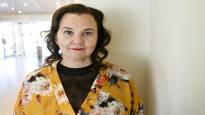Security policy researcher of Hanna Smith according to the events in Moscow show that Islamist terrorism had managed to fall off Russia’s “radar”, i.e. monitoring.
Smith says that the attack also indicates the waning of Russia’s resources.
– Sometimes we have a narrative that Russia is strong and omnipotent. But yes, Russia’s resources are starting to be pretty thin, when you think about how many things it has to monitor and control.
Smith says that in addition to the war in Ukraine, resources have been spent on monitoring the opposition.
– It is not only the war in Ukraine, but all the time we also focus on who is against the war and who criticizes Putin. Terrorism may have fallen off the radar then.
Opposition to terrorism brought Putin to power
Smith says a particularly big failure Vladimir Putin point of view is that the attack happened precisely in the capital, Moscow, which is the most well-monitored and monitored.
He reminds that it was the opposition to terrorism that brought Putin to power. Putin was prime minister in 1999, when bombs exploded in apartment buildings, killing more than 300 people.
Russia had waged war in Chechnya for the first time in 1994–1996. According to Russia, Chechens were behind the apartment building attacks, and Russia sent troops to Chechnya again.
Putin harnessed the fight against terrorism as a tool of his election campaign and became president.
– Putin became popular because he promised to eradicate terrorism, says Smith.
When the United States exploded on September 11, 2001, Putin was able to tell the West that he had been right.
– Putin had succeeded in arguing that terrorism was the problem, and that international cooperation was needed to combat it. The image of him as an opponent of terrorism was strengthened.
Since then, numerous terrorist attacks have occurred in Venjä. In 2002, terrorists attacked a theater in Moscow and in 2003, a concert. In 2004, they attacked a school in Beslan.
Smith says that if Russia had followed the whole thing, the ISIS attack would not have come as a surprise.
According to Smith, researchers monitoring ISIS have noticed an increase in anti-Russian propaganda in the terrorist organization’s communication channels.
Yesterday’s ISIS attacks are related to Russia’s actions in Syria and Afghanistan.
In Syria, Russia supports Bashar Al-Assad, which is fighting ISIS. In Afghanistan, Russia supports the Taliban attacking ISIS.
The United States also warned Russia about the attack. The warning was issued by the US Embassy in Moscow at the beginning of March.
– It was a handout from the United States, they almost offered help, Smith says.
However, Putin rejected the US warning as a provocation.
According to Smith, the delay in Putin’s public reaction and speech indicates that the Russian leadership had to think about how to explain what happened to the citizens.
Putin spoke publicly only today, Saturday. The attacks took place on Friday evening.
– There we searched for what is the best narrative for the Russians, which tip to start with.
The fact that Russia decided to blame the attacks on Ukraine is, according to Smith, a way to hide the failure of the state leadership in combating terrorism.
Nothing is stable in Russia
Hanna Smith says that the lesson of the attacks is that nothing is stable in Russia. Anything can happen and the blocks fly to a new position in an instant.
Smith says that since the presidential election, all attention has been focused on Russia moving into a war economy and preparing a major invasion of Ukraine.
Before that, opposition leader Alexei Navalny was murdered at a time when the opposition in Russia was almost forgotten.
Just over a year ago, it was thought that no one would dare to challenge Putin, until the leader of Wagner Yevgeny Prigozhin attempted to march on Moscow.
– Russia is a complex entity. It is never as strong or as weak as we think. When we focus on one thing, something surprising happens, says Smith.
